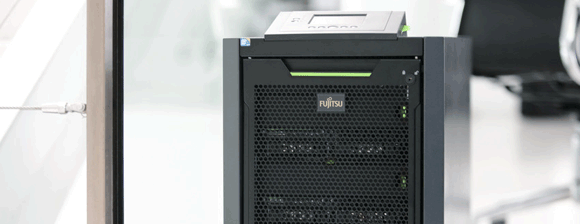Archived content
NOTE: this is an archived page and the content is likely to be out of date.
Responsabilidade Ambiental
To contribute to the creation of a sustainable environment for future generations, Fujitsu has made environmental protection a top management priority. With clear environmental goals set for all business areas, the company conducts all business activities in a well-planned and sustainable manner. The Fujitsu Green Procurement Policy includes a committment to implementing Green Procurement throughout the supply chain, which includes the business partners. From the earliest stage of development the products incorporate energy conservation concepts in design and material selection. These initiatives ensure that the customers are provided with eco-friendly products that reduce the burden on the environment.
In order to help customers in their efforts to protect the environment, Fujitsu is also supplying them with environmental solutions incorporating the know-how and innovative technology the company developed for its own environmental counter-measures. In this way, Fujitsu is working together with its customers in protecting the global environment.
Fujitsu i s a member of The Green Grid, a consortium of IT companies and professionals seeking to lower the overall consumption of power in data centers around the globe. Fujitsu is also a member of the Climate Savers Computing Initiative. This initiative brings together industry, consumers and conservation organizations to significantly increase the energy efficiency of computers and servers. As a member, Fujitsu is committed to develop and offer products that meet or exceed energy efficient standards.
For these reasons and others, the Dow Jones Sustainability Index includes Fujitsu.
When it comes to products, Fujitsu Technology Solutions offers a complete range of environmentally conscious products and uses environmentally friendly technologies and processes throughout the entire product lifecycle. At the same time, the company has a 20 years history of Green IT. The company was the first global manufacturer to introduce a Blue Angel-certified Green PC to market (1993) and one of the first to implement a full-scale product recycling program in 1988.
Today, the company's portfolio of green products ranges from thin clients to desktop PCs, workstations and servers. The green portfolio is constantly expanding with innovations such as the Fujitsu 0-Watt display, the ESPRIMO 0-Watt PC and the 0-Watt AC adapter for LIFEBOOK notebooks, and challenged by visions such as Fujitsu’s WoodShell concept design which adopts natural materials and bio-based plastics for PC housing and parts.







